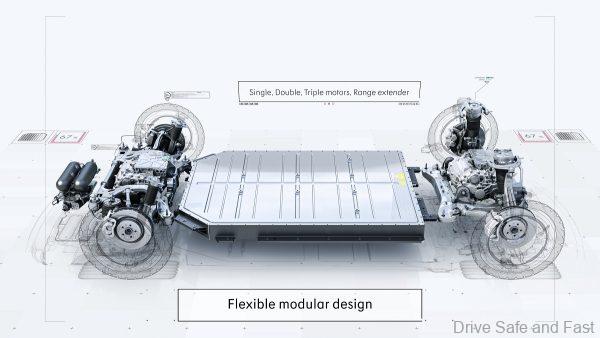Chinese car manufacturer partners search engine giant with SEA platform.
Chinese search engine company Baidu has joined forces with Geely Auto to start a brand new car brand that will be powered by Geely electric vehicle technology and driven by Baidu autonomous drive software. Called Jidu Automobile, the very first model will be unveiled at the 2022 Beijing Auto Show.
The name Jidu Automobile was registered in Shanghai earlier this year in March and is registered with a capital of 2 billion yuan (USD309 million).
There are five seats on the board of directors of the new company. Newly-appointed CEO Xia Yiping is included, along with three other directors from Baidu and one from Geely. Baidu owns 55 percent of Jidu and Geely has a 45 percent stake in the company.
About two years earlier, Baidu was in talks with Volvo Cars to manufacture full autonomous electric cars.
Recently the CEO of Jidu Automobile Xia Yiping said that the joint venture car design has already been decided and it would be equipped with Baidu’s Apollo autonomous driving technology and Geely’s Sustainable Experience Architecture (SEA) platform for electric vehicles (EVs).
The car is expected to cost at least 200,000 yuan (USD31,300) due to the relatively high costs of the smart car components, Xia explained.
The CEO also announced that Jidu Automobile would not build its own supply chain. “It is precisely because of the cooperation with Geely that enables us to use the advantages that Geely’s supply chain brings us,” Xia said. This would incentivize suppliers to cooperate with the new brand and would also lower production costs.
According to Xia, if all goes to plan, consumers can start placing orders for the vehicle before next year.
Robin Li, co-founder and chief executive of Baidu, said: “We believe that by combining Baidu’s expertise in smart transportation, connected vehicles and autonomous driving with Geely’s expertise as a leading automobile and EV manufacturer, the new partnership will pave the way for future passenger vehicles.”

“China has become the world’s largest market for EVs, and we are seeing EV consumers demanding next-generation vehicles to be more intelligent,” Mr Li said in January.
China’s move towards EVs is supported by the government. Although it abolished most subsidies for electric cars, the government announced in 2019 that it would ease license plate restrictions on more environmentally-friendly vehicles.
Since 2008, it has been notoriously difficult in most Chinese cities to register one’s car. In an effort to curb air pollution and traffic congestion problems, most municipal governments implemented strict quotas on license plate applications.
It has become so hard to obtain a license plate in Beijing that the municipal government introduced a bi-monthly lottery system in 2011. Last year, it announced that more slots and shorter waiting times would be made available for EVs.

